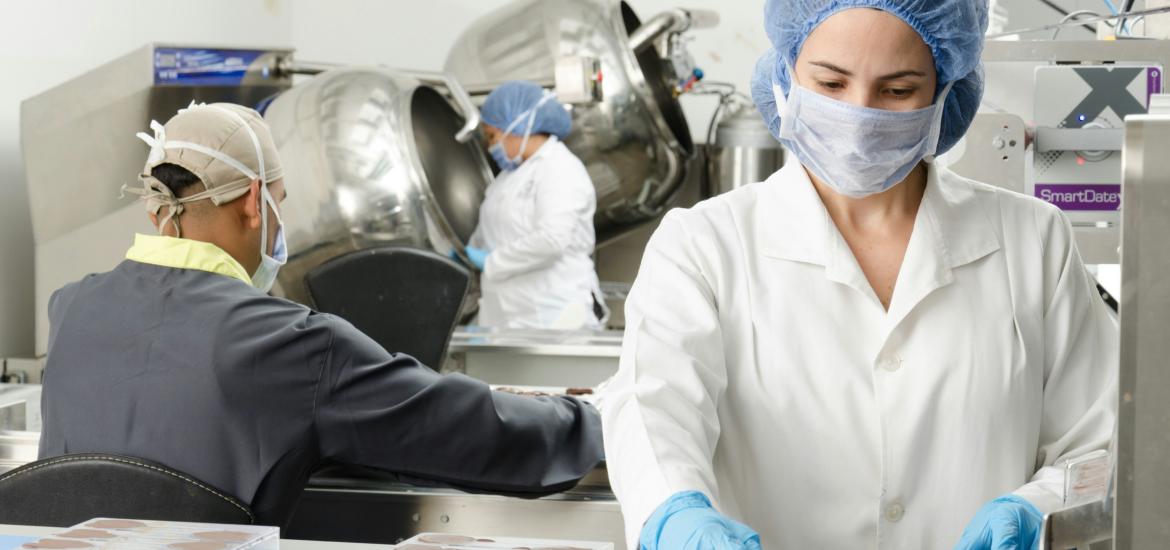
Private US biotechs head for human trials
Halda, Accent and Vividion take more projects into phase 1.
Halda, Accent and Vividion take more projects into phase 1.

Two private US biotechs that tapped investors for significant fund-raisings last year, Halda Therapeutics and Accent Therapeutics, have taken new pipeline projects into their first human studies, recent entries to the clinicaltrials.gov registry reveal.
Fresh listings also include a Bayer-owned biotech, Vividion, as well as two new Claudin6-directed projects and an unusual ADC approach to hitting cKIT, a protein more commonly targeted with small molecules. While Accent is playing into a synthetic lethality mechanism, KIF18A inhibition, that has seen recent industry interest, for Halda the focus is more on technology.
That interest in KIF18A inhibition has largely featured Volastra, yet another private US biotech, backed by Lilly, whose pipeline features an internally generated molecule, VLS-1488, as well as the Amgen cast-off sovilnesib. Apart from these there are just two other KIF18A inhibitors in clinical trials, and the total will rise to five once Accent's ATX-295 starts phase 1 in April.
Accent and Halda
Accent closed a $75m series C financing a year ago, and until the appearance of ATX-295's clinicaltrials.gov entry this molecule didn't have a disclosed code.
For its part, Halda raised $126m in a series B round last August, and its first-in-human entrant, HLD-0915, hits a more common target, the androgen receptor. However, this uses a new approach, which the company calls RIPTAC (a regulated induced-proximity targeting chimaera), and which also lies behind Halda's other pipeline projects.
The aim of RIPTACs, which are small molecules, is to bring a tumour-specific targeting protein like the androgen receptor into close proximity with an undisclosed protein essential for cell survival so the two form a ternary complex, resulting in cancer cell killing. HLD-0915 has become Halda's first clinical-stage asset.
Recently disclosed first-in-human studies*
| Project | Mechanism | Company | Trial | Scheduled start |
|---|---|---|---|---|
| VRN10 | HER2 inhibitor | Voronoi | HER2+ve solid tumours | 11 Feb 2025 |
| NN3201 | cKIT ADC | Novelty Nobility | Solid tumours | 28 Feb 2025 |
| HLD-0915 | AR “RIPTAC” | Halda | Metastatic castration-resistant prostate cancer | Feb 2025 |
| VVD-159642 | RAS-PI3Kα inhibitor | Vividion (Bayer) | RASm, EGFRm or HER2-overexpressing solid tumours | 1 Mar 2025 |
| KNT-0916 | FGFR2 inhibitor | KinoTeck | FGFR2-altered solid tumours | 31 Mar 2025 |
| BGB-B455 | Claudin6 T-cell engager | BeiGene | Claudin6+ve solid tumours | Mar 2025 |
| ATX-295 | KIF18A inhibitor | Accent | Solid tumours | 30 Apr 2025 |
| AT03-65 | Claudin6 ADC | Axcynsis | Claudin6+ve solid tumours | Apr 2025 |
Notes: *projects newly listed on the clinicaltrials.gov database between 29 Jan and 5 Feb 2025.
Meanwhile Vividion, which Bayer acquired for $1.5bn in 2021, is progressing VVD-159642 into phase 1 in solid tumours with several mutations including RAS or EGFR.
VVD-159642 aims to block RAS and PI3Kα simultaneously, an approach that shares some common features with BridgeBio's BBO-10203; that molecule is a PI3Kα:RAS breaker that aims to inhibit RAS-driven PI3Kα activation. Vidivion is perhaps best known as the source of the Werner helicase inhibitor RO7589831 that was licensed to Roche.
Novelty Nobility's anti-cKIT ADC NN3201 is claimed to be more potent than small-molecule inhibitors of this protein such as Novartis's Gleevec, at least according to its preclinical poster at last year's AACR meeting. The small-molecule KIT inhibitor field has separately seen Ono buy Deciphera for $2.4bn, and GSK shell out $1bn for the privately held IDRx.
In Claudin6 TORL Biotherapeutics last year challenged BioNTech's Car-T project BNT211 with an ADC coded TORL-1-23, and the clinical-stage ADC space now includes Axcynsis's AT03-65, in addition to Daiichi Sankyo's DS-9606a. And there's a new T-cell engager on the scene too, in the shape of BeiGene's BGB-B455, due to begin human trials next month.
1248













